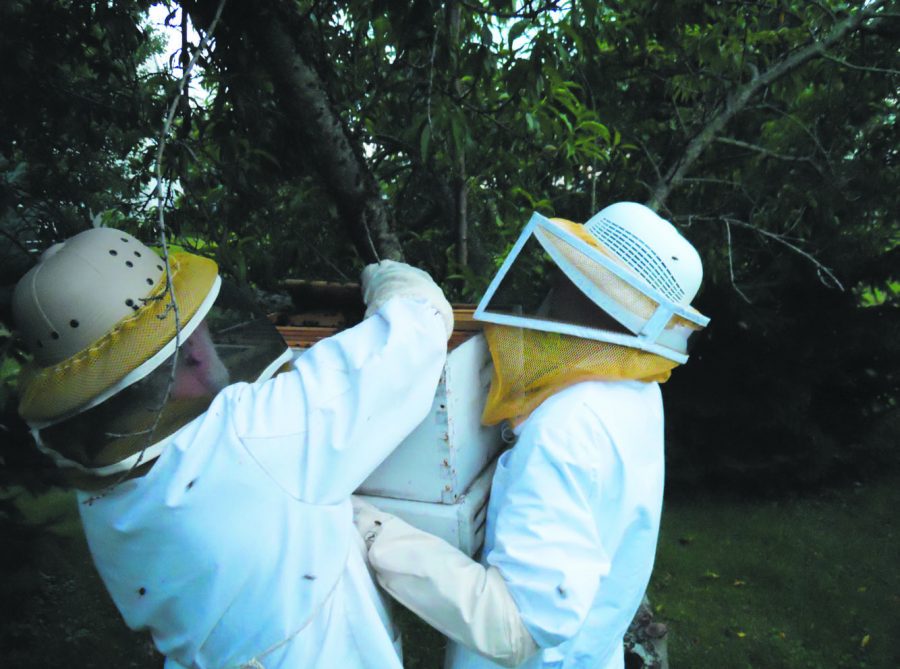Nectar necessity
NHS art department chair Craig Helming cuts a swarm of bee from a tree. Helming was a beekeeper for three years.
February 24, 2017
Senior Clay Obergfell explores his passion with beekeeping
Flying insects are normally considered pests. But to some, they are considered pets.
Senior Clay Obergfell began keeping bees last year. He says he started out of pure curiosity in bees.
“I started raising chickens first, and I always just thought [beekeeping] was interesting,” Obergfell said. “No one really got me into it besides myself.”
Obergfell owns a full hive of Italian honey bees: a subspecies of the western honey bee.
“We have 11 acres on our property, so they’re just back in the field,” Obergfell said. “They’re in a box, a bee hive. It’s got frames that they build the honeycomb on.”
Obergfell bought the bees online from Georgia.
“They ship them in a box,” Obergfell said. “When I first bought them, there were 10,000 in each package, so I bought two packages and the queen can lay up to 1000 eggs a day.”
A single jar of honey takes around 20,000 bees to make in 10-20 days. In order to extract this honey, beekeepers must reach inside of the hive and take out the comb. Then, they put it in a honey extraction device and spin it to get the honey out.
“Originally, I didn’t wear a suit, and then I started getting stung,” Obergfell said. “Supposedly, a bee starts to recognize their beekeeper, but they got more aggressive the longer I had them and kept messing with them.”
NHS art department chair Craig Helming also has a strong passion towards beekeeping. He kept a hive for three years before he had children.
“I had been interested in it for years and I had never pursued it,” Helming said. “Around my birthday, I just started asking for bee equipment and people pulled through. So I think at that point I was kind of expected to be a beekeeper.”
According to CNN, the honey bee pollinates 70 different crops that feed 90 percent of the world.
“Just recently, there have been a couple species of bees that have been put on the endangered species list,” Helming said. “That’s bigger than what most people recognize. Eighty percent of what you eat, consume, or put in your body is because of the honey bee. If the bee were to become extinct, our society would have to become a corn and rice consuming society,”
Helming has since quit beekeeping but still has a major passion for bees and wishes to continue later in his life.
“I love life,” Helming said. “I enjoy it. I want it to continue. I want my children to have the same opportunities that I have and the same beauty on the earth that I have.”
According to the National Resource Defense Council, The bee may become endangered due to Colony Collapse Disorder (CCD). This disorder occurs when a group of worker bees leaves the hive, abandoning the queen and the immature bees. Bees cannot survive without a queen and a queen can not survive without her worker bees. Therefore, CCD will lead to the destruction of the entire hive. The cause of CCD is unknown; however, scientists are studying ways to prevent it.
“I just wish more people would recognize the importance of [bees],” Helming said.
Helming claims that purchasing honey locally will help keep the bees thriving.
“[Buying locally] will help yourself, help the bees and help every single person in this world because that’s money that [the beekeepers] can invest into more bees and then in turn into society, the human existence and your future,” Helming said.




